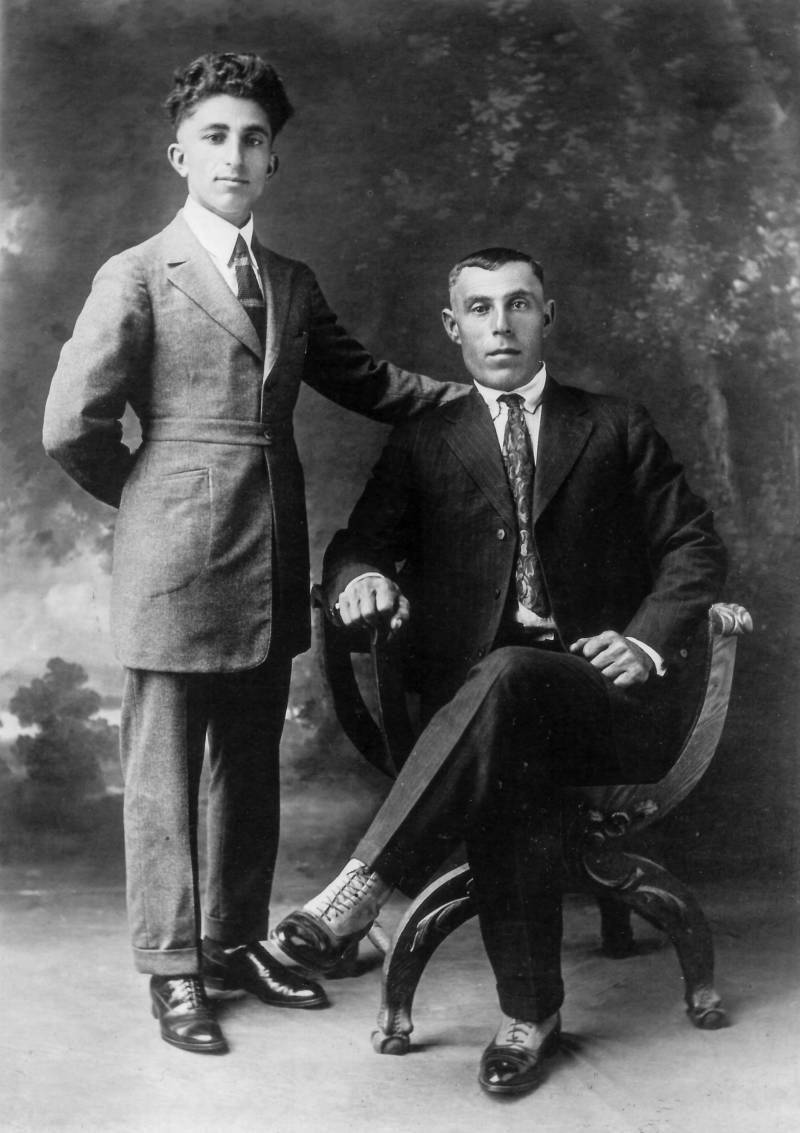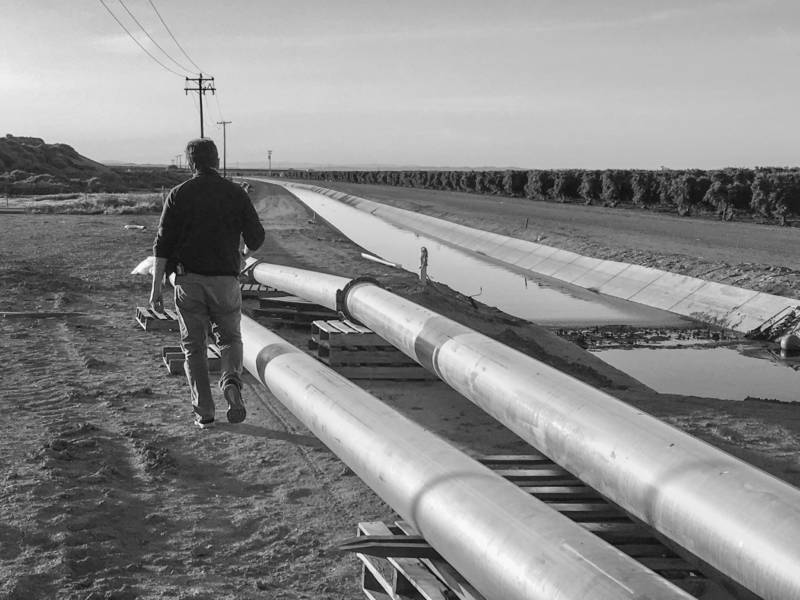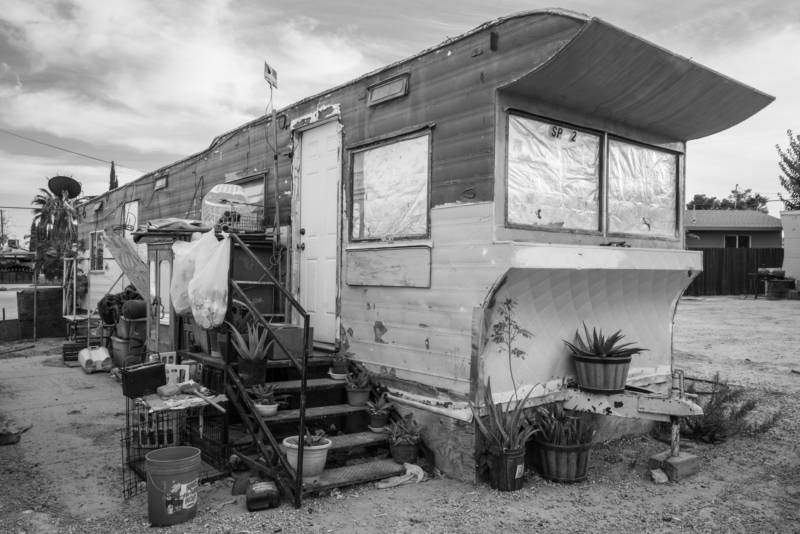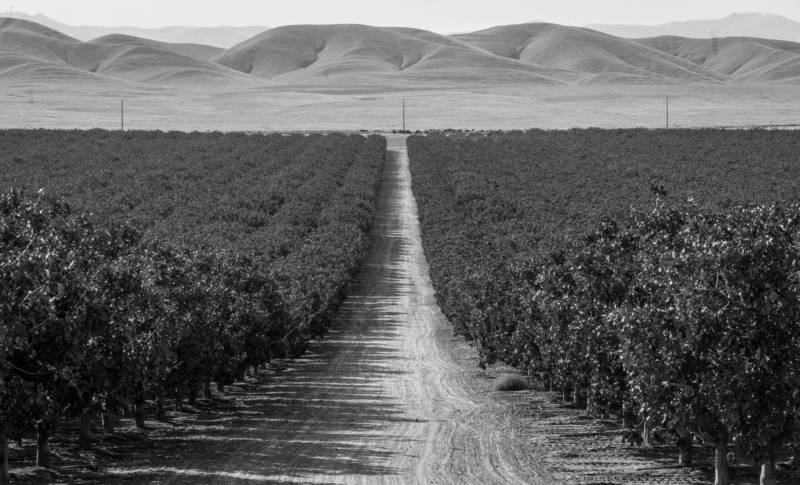Mark Arax’s new book, "The Dreamt Land: Chasing Water and Dust Across California," explores how the quest to find and move water has always been essential to the California Dream. He recently won a James Beard Award for a piece in the California Sunday Magazine excerpted from the book. Arax is a former Los Angeles Times correspondent whose books about California and the West have received a number of awards for literary nonfiction.
He sat down with California Report Magazine Host Sasha Khokha. The excerpts below have been edited for brevity and clarity.

On his own family’s California dream:
My paternal grandfather was a big dreamer. After the Armenian genocide, he had a choice to go the Sorbonne in Paris or to join an uncle in Fresno. He starts getting these letters from his uncle in 1919, telling him to come to this 'new Armenia' in the middle of California:
“Here find an Eden of pomegranate and peach. Grapes that hang like jade eggs. Watermelons so capacious that when you finish eating their delicious meat, you can float inside their shells in the cool waters of irrigation canals....You must see it with your own eyes.”
So he chooses Fresno over Paris. When he gets here he sees that he's been sold a bill of goods a little bit. It’s a lot of hype. It’s this kind of desert.
On the mythmakers who sold the idea of California during the Gold Rush:
There was [Charles] Nordoff, this wonderful writer from the east who wrote for Harpers and three New York dailies. Then he signs up with the Southern Pacific Railroad to basically sell California to the rest of America and the world. There’s James Hutchings, who starts this incredible magazine called Hutchings' Illustrated California. It was explaining California to its new inhabitants, and in that explanation, was changing the place. It was like The New Yorker of its day in the 1860s.
On what made him want to write about water and the California Dream:
As a kid growing up, you're dumb to your place, like all kids are. I remember these irrigation canals slicing through our neighborhoods, and I never thought, ‘Where were they going? To whom were they going? And by what right?’ All I remember is my grandmother saying, 'Don't ever go up that bank. Because if you fall in no one's going to come to save you. Because the flow of that irrigation canal is more important than the lifeless body of one little boy.'
On his quest to trace who owns and controls the water flowing through those canals:

Look at the proposition of the first dreamers who seized this land from the natives: to take this thousand miles of the edge of a continent and call it one state. Then move the water from where it falls to where the people are living. In some cases that's a 700-mile hike. We built the grandest reclamation project in the history of man. But the dilemma still exists: you’re taking from one place and giving to another. Baked into all of it are these water wars that have become eternal. And then this system which was so magnificent and still is. But it’s cracking because of all the demands we're putting on it.
On California’s wealthiest farmers, Lynda and Stewart Resnick, who control an empire of citrus and nuts in the Central Valley, but live in Beverly Hills:
The Resnicks are just a throwback to the early wheat barons of California. Like Isaac Friedlander, who was 6 feet, 7 inches and took these strides twice the length of normal man. He was the wheat king. He lived on Nob Hill in San Francisco. And so did James Ben Ali Haggin, the "Grand Khan of the Kern" who accumulated nearly 500,000 acres of California farmland. These barons who made all this money in gold and farmed from afar.
Today the Resnicks control more land and more water than any single person in the state of California. It’s this remarkable story of how folks with enough wealth can capture the flow of rivers and the groundwater, and with that plant almond trees all the way out to the horizon. They're not only bending water, they're bending man because they're bringing people across the border to work in the field. They're bringing bees from afar. Bending bees, bending chemicals. It’s all a kind of manipulation to create these crops.

On where we’re headed as a state when it comes to water:
We've overdeveloped suburbia, and we've overdeveloped the farmland. And the tool to do that was water. We started with the rivers, then we went deep in the earth and sucked that water until the land sunk. Now the system is at a breaking point and we have to decide, how many people can California sustain? In my lifetime alone, this state has grown from 11 million people to 40 million. I mean, how many more can we take? 50? 60? These are the questions that we never start off with, but that is the question. We’re going to have to fallow some farmland that’s marginal. Are we going to put the extra water back in rivers? Or are we going to let farmers sell it so suburbia grows even more?
On why the myth of California endures:
It’s a powerful, powerful myth. It’s stunning to see how it endures. People still want to come here. They’re risking lives to come here. And it's hard to say no to them. I mean, my family came here. Although sometimes I wish we would have landed in Paris instead of Fresno.
